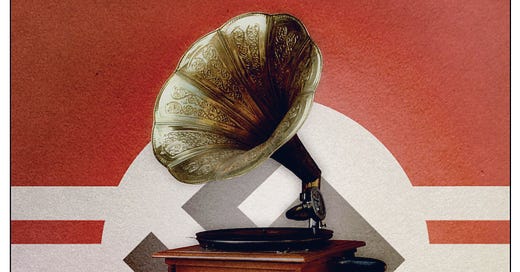The novel takes the form of a journal of an elderly music critic named Otto Steiner who is dying of tuberculosis and is confined to a sanitarium in Salzburg, Austria. The journal begins just days before the start of World War II.
At first, we follow Otto’s thoughts on his disease and being confined to the sanitarium, then his love of music and how he had spent his life as a music critic, followed by thoughts of his family, friends and neighbors, and most importantly his son, who left Austria some time earlier for Palestine, getting out of Austria at a time when Jews still had that option. Otto is secretly Jewish, though the doctors at the sanitarium and the authorities are unaware of this. (His doctor had already informed on one patient once the patient’s background was discovered). Otto’s father wasn’t a religious man and therefore didn’t raise his children as Jews. Otto feels his days are numbered so he begins the journal more for his son than for himself.
Otto’s friends come to see him from time to time, and one of his good friends tells him of the upcoming Salzburg music festival and offers him the opportunity to become involved by helping to write the program for the event. But Otto soon realizes the Nazis are planning to turn what was once a respected music festival and turn it into a Nazi propaganda event, which insults him personally as a life long lover of music as well as a human being. Otto agrees to help and decides he must ‘save Mozart’ from this travesty, and he does so by fighting back in his own way — and conducting a bit of musical transgression.
A good portion of the story relates Otto’s relationship to famous composers, musicians, and conductors, and there is a very interesting and disturbing twist when it comes to them. The rest of the book very subtly reveals the increasing horror taking place now that the world is at war — occasional raids of the sanitarium, news broadcasts of what’s going on in the outside world. You sense Otto’s increasing despair and isolation although what is happening at the sanitarium eerily mirrors what’s going on outside its walls. There are sections of the novel which appear as letters to his son. Otto is determined to live through the festival, to fight back the only way he can — with music; beautiful music meant to be heard the right way, not co-opted for cynical political purposes. He wants to re-humanize the very thing the regime is dehumanizing.
It is a short novel but a powerful one and its ending is abrupt, which is kind of shocking in some ways due to what’s not said. This is a novel that will stay with you for a very long time. A different take on the holocaust for sure, but it is mostly about the power of music and how it can be used as an act of waging war as well as being a powerful tool of resistance.
Saving Mozart is available here.




